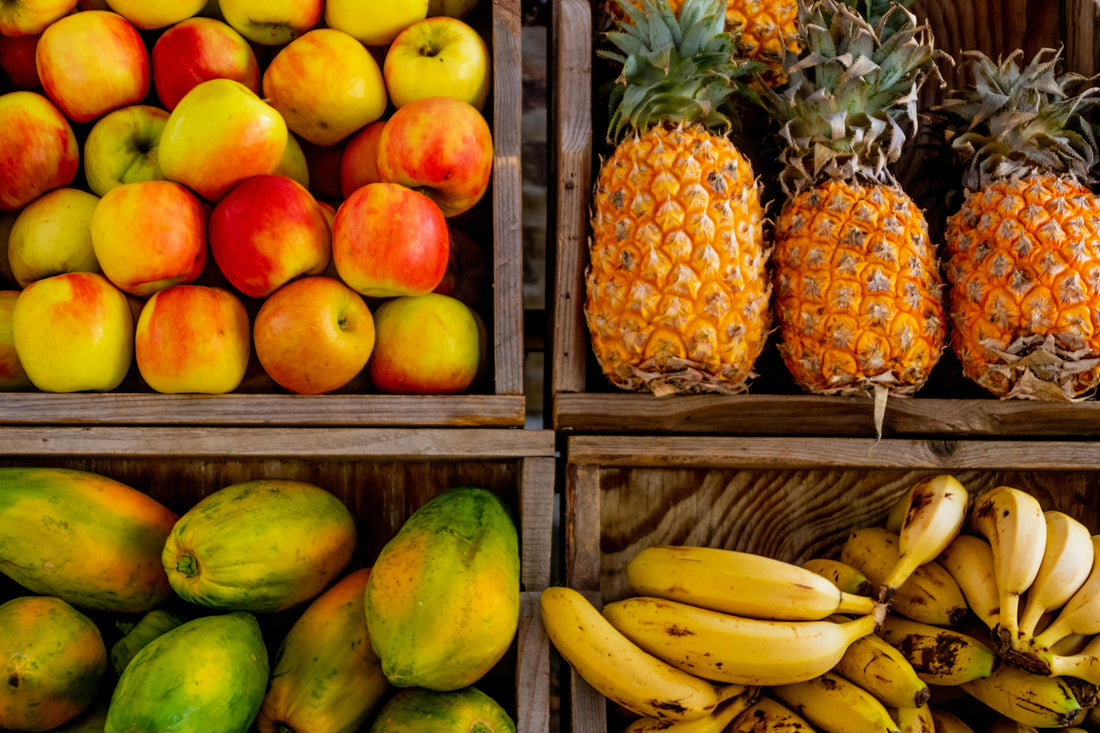
Difference Between Smoodee and Fresh Fruits and Vegetables
We all know that eating plenty of fruits and vegetables is crucial for our health. But with our busy lives, it can be tough to always have fresh produce on hand. That's where Smoodee comes in! But how does Smoodee compare to fresh fruits and vegetables? Let's dive in and explore the differences.
1.Nutritional Value: Fresh vs. Freeze-Dried
When it comes to nutrition, fresh fruits and vegetables are often considered the gold standard. However, the truth is a bit more nuanced. While fresh produce is undeniably nutritious at its peak, the nutritional content can decline rapidly after harvest due to factors like:
Time: The longer produce sits in storage or on supermarket shelves, the more nutrients it loses.
Exposure to air and light: Oxidation can degrade vitamins, especially vitamin C.
Temperature fluctuations: Improper storage temperatures can accelerate nutrient loss.
Washing and cooking: Washing and cooking methods can also leach out vitamins and minerals.
Smoodee, on the other hand, is made with a unique freeze-drying process that locks in nutrients at their peak freshness. This means you get the same amazing benefits of fresh produce, but with a longer shelf life and no worries about spoilage.
2. Convenience and Accessibility
Let's face it, life gets busy. Sometimes, finding the time to shop for, wash, chop, and prepare fresh produce can feel like a Herculean task. Smoodee offers unparalleled convenience. Just add water, shake, and enjoy! It's perfect for busy mornings, afternoon pick-me-ups, or whenever you need a quick and healthy boost.
Plus, Smoodee is incredibly accessible. You can take it with you anywhere – to the office, the gym, or even on vacation. No more worrying about finding fresh produce when you're on the go.
3. Sustainability and Food Waste
Food waste is a major global issue, with significant environmental and economic consequences. Did you know that nearly half of all fruits and vegetables produced globally go to waste? Smoodee is committed to reducing food waste by using imperfect produce that might otherwise be discarded.
Our freeze-drying process also extends the shelf life of fruits and vegetables, minimizing spoilage and helping you waste less at home. Plus, Smoodee's lightweight packaging reduces transportation costs and environmental impact.
4. Taste and Variety
While nutrition and convenience are important, taste matters too! Smoodee comes in a variety of delicious flavors, all made with real fruits and vegetables. Whether you prefer classic blends or more adventurous combinations, there's a Smoodee to satisfy your taste buds.
And because Smoodee is made with freeze-dried produce, you can enjoy seasonal fruits and vegetables all year round, regardless of their availability in the market.
5. Cost-Effectiveness
Image: A comparison graphic showing the cost of fresh produce versus Smoodee, highlighting the value and convenience factor of Smoodee.
While fresh produce can be expensive, especially when it's out of season or imported, Smoodee offers a cost-effective way to enjoy your 5-a-day. Our freeze-dried smoothies have a long shelf life, so you can buy in bulk without worrying about spoilage, saving you money in the long run.
Plus, with Smoodee, you're not just paying for the produce itself; you're also paying for the convenience, the reduced waste, and the peace of mind that comes with knowing you're getting a nutritious and delicious meal or snack.
Ready to give Smoodee a try? Visit our website to explore our delicious flavors and start your journey to a healthier and more sustainable you!
Further Reading:
Effects of Freeze Drying on Food: The Freeze-Drying of Foods—The Characteristic of the Process Course and the Effect of Its Parameters on the Physical Properties of Food Materials
The Benefits of Freeze-Drying: "Advantages of Freeze-drying: Preserving the Value of Whole Foods" from Van Drunen Farms:
The Impact of Food Waste: "Food Waste Management" from the National Environment Agency (NEA) Singapore
The Importance of a Plant-Rich Diet: "Plant-Based Diets" from the World Health Organization (WHO)
